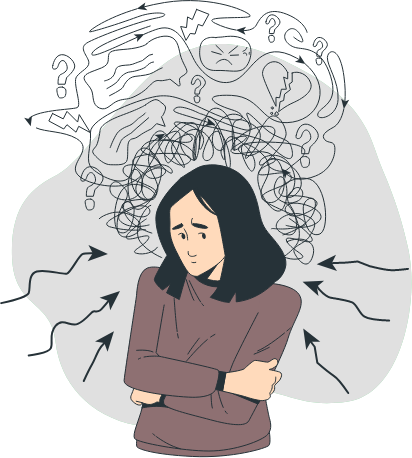Our greatest glory is not in never failing, but in rising up every time we fail.
Ralph Waldo Emerson


Grief is the anguish experienced after significant loss, usually the death of a beloved person. Grief often includes physiological distress, separation anxiety, confusion, yearning, obsessive dwelling on the past, and apprehension about the future. Intense grief can become life-threatening through disruption of the immune system, self-neglect, and suicidal thoughts. Grief may also take the form of regret for something lost, remorse for something done, or sorrow for a mishap to oneself.

Nobody wants to experience the death of someone they care about. It hurts. It's inevitable that we will live through the death of someone we truly love. Even celebrity deaths can stir up a lot of tough feelings for people. Whether it's your favorite singer or your grandmother that dies, there is no easy way to get through it. What you're experiencing is grief.
Denial: "I don’t believe they are really gone."
Anger: "I’m so angry that they left me."
Bargaining: "I promise I’ll change if they come back."
Depression: "I feel hopeless about my future without them."
Acceptance: "I can go on with my life and deal with their absence."
Most people that experience a death go through these stages. Not everyone experiences them in the same order and some people stay in one stage longer than others. For example, one person may be in denial about a death for a few days but stay angry for several months. Another person may only feel angry for a week but feel depressed for much longer. It's very important to remember that everyone experiences grief differently. There is no specific way to feel grief. Let's say one of your friends dies in a car accident. You may experience it much "harder" than your other friends, or you may seem unaffected while everyone around you is struggling to get through it.
If you are experiencing grief, what can you do about it?

When I say “positive,” I don’t mean sunshiny and happy, I mean positive as in something that will be beneficial to you, like writing, dancing, playong sports, singing, etc. Keeping away from negative outlets is also important because you are particularly fragile when you are grieving. Self harm, drugs, and alcohol may be easily accessible and provide quick, short term relief, but later down the road, numbing the pain in these ways will only make your loss and pain more deep rooted and harder to release.
Grief changes a person inside and out. Nothing is the same afterwards. It’s hard to know how to address someone who is living this process, but here are some tips on how to be a good friend during their process:

Do not compare your own grief to theirs; every single person goes through this differently. Comparing your grief to theirs makes it seem like it’s all about you… even if you're just trying to make them feel better.

Offer a listening ear. Sometimes it’s hard to know what to say or do to help someone. Often, the best thing to do is sit back and listen. Just be there for them.

Do not make them feel bad for how they are experiencing grief. Saying “it could be worse” or “so-and-so has it worse and they are doing fine,” is harmful because it can often lead the person to feel ashamed and isolated, which is the last thing a grieving person needs.

Give them as much love and support as you possibly can. Grief can be a lonely journey, but when there’s someone there supporting you, it eases a little of the pain.
May there be comfort in knowing that someone so special will never be forgotten.
Julie HebertGrief and love are conjoined, you don’t get one without the other.
Jandy NelsonAnd when great souls die, after a period peace blooms, slowly and always irregularly. Spaces fill with a kind of soothing electric vibration. Our senses, restored, never to be the same, whisper to us. They existed. We can be. Be and be better. For they existed.
Maya Angelou